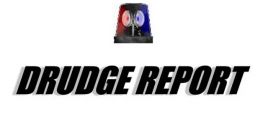Legislators Send Letter To Treasury Department Demanding Release Of Funds Seized In Bogus Structuring Caseby Tim CushingTechdirt Aug. 21, 2015 |
Popular 
John Hagee Cheers Israel-Iran Battle as 'Gog and Magog War,' Will Lobby Congress Not to Deescalate

Right-Wing Media See Traffic Plummet in Wake of Algorithm Changes by Facebook, Google

Haaretz: "Israel Has Been Defeated - A Total Defeat"

NBC News: Biden 'Concerned' Israel is Trying to Drag America Into a War With Iran

Congress Introduces ADL-Backed 'Countering Antisemitism Act' to Police Online Speech
 Asset forfeiture finally found its way into the mainstream after years of coverage by media outsiders. The sudden increase in negative attention brought about some needed reform efforts. The DOJ issued new guidelines on civil asset forfeiture, as did the IRS, which announced it would no longer pursue seizure of funds under "structuring" statutes unless there was evidence the money came from criminal sources. One of the victims of the IRS's bogus "structuring" seizures (made pre-policy shift) is Randy Sowers, a dairy farmer who had $63,000 seized by the agency in 2012. The cash came from sales made at local farmers' markets, but the IRS viewed it as a criminal act simply because Sowers never topped the magical $10,000 mark with his deposits. The Sowers were "working" with the IRS to have the funds returned (this implies a modicum of due process that doesn't actually exist in civil forfeiture). Then Randy Sowers almost screwed things up, as Melissa Quinn of the Daily Signal reports. While the couple was in the midst of settlement negotiations with the government, hoping to have most of their money returned, Randy Sowers spoke with a reporter from The City Paper in Baltimore, Md., about his experience with structuring and civil asset forfeiture.This attitude seems to be common to IRS prosecutors. They don't mind taking your money for the flimsiest of reasons and they don't mind fighting you every step of the way should you choose to challenge the seizure, but goddamn if it doesn't piss them off if you decide to discuss your situation in public. If you'll recall, another victim of a bogus structuring seizure took his case (mostly anonymously) to a Congressional hearing. The prosecutor in that case reacted just as badly to the public airing of IRS-related grievances. He sent a letter to the Institute of Justice (which is representing the convenience store owner who had $107,000 seized by the IRS) that basically stated any publicity resulting from this would only harm this person's case. Because vindictiveness. I do not know who did that, and I am accusing no one, but it was not from our office and could only have come from your clients. That was certainly not my intent in making this available. Whoever made [the document] public may serve their own interest but will not help this particular case…The prosecutor then offered a take-it-or-leave-it deal of 50% of the seized cash back. C-store owner Lyndon McLellan chose the latter. Sowers, however, did eventually settle with the IRS, receiving (coincidence?!) half of the seized funds. Why settle when you're clearly in the right? Because it's tough to run a business when your liquid assets have suddenly vanished. Half is better than nothing, especially if you want to remain solvent. Now, he wants the other half. And he's brought backup. A bipartisan group of lawmakers on the House Ways and Means Oversight Subcommittee is coming together to ask the Treasury Department to return nearly $30,000 it seized from Maryland dairy farmers in 2012.The letter reminds the Treasury Department that the seizure program is in place to stop money laundering, drug trafficking and disrupt the funding of terrorist organizations. It is not just a quick and dirty way for the government to take money from cash-heavy businesses who frequently deposit cash in sub-$10,000 quantities. In many of these cases, it appears business owners have received bad advice from well-meaning family members or friends. In other cases, the bad advice comes from the bank employees themselves. What doesn't appear to be integral to these disputed cases is any link to criminal activity. A very long petition for the return of the money has been lodged with the DOJ. It points out that under the agency's current rules, the sort of seizure they've experienced would not even be initiated. It also points out that the couple was apologized to by several members of the Congressional committee and the IRS Commissioner himself. And yet, the Treasury Department refuses to cede any ground on the other half of the Sowers' funds. Hopefully, a three-page letter from a bunch of legislators will compel the return of the Sowers' money -- something their 209-page complaint has yet to accomplish. House Ways and Means Letter to Secretary Lew (PDF) IRS Forfeiture Petition Randy Sowers (PDF) |



